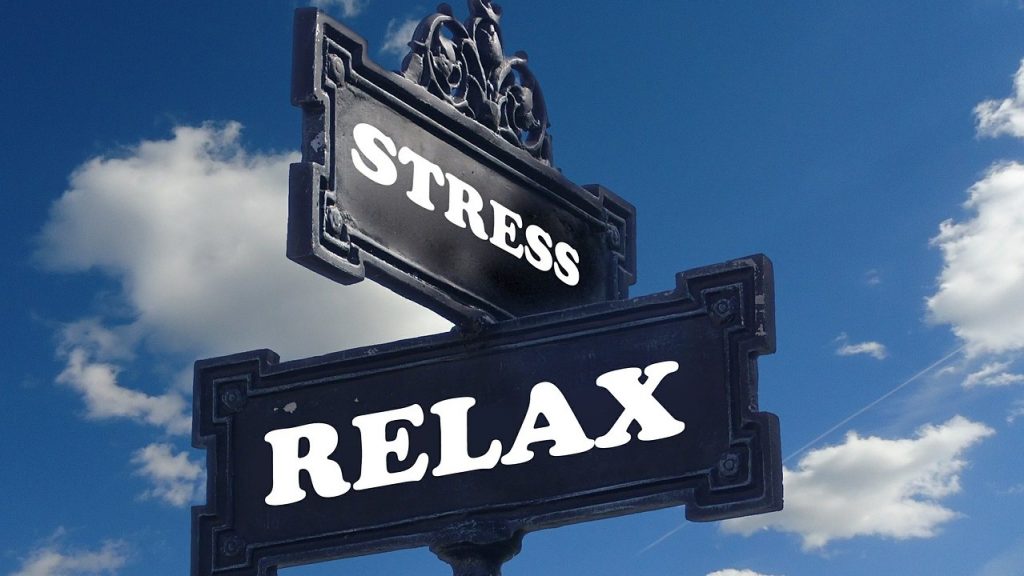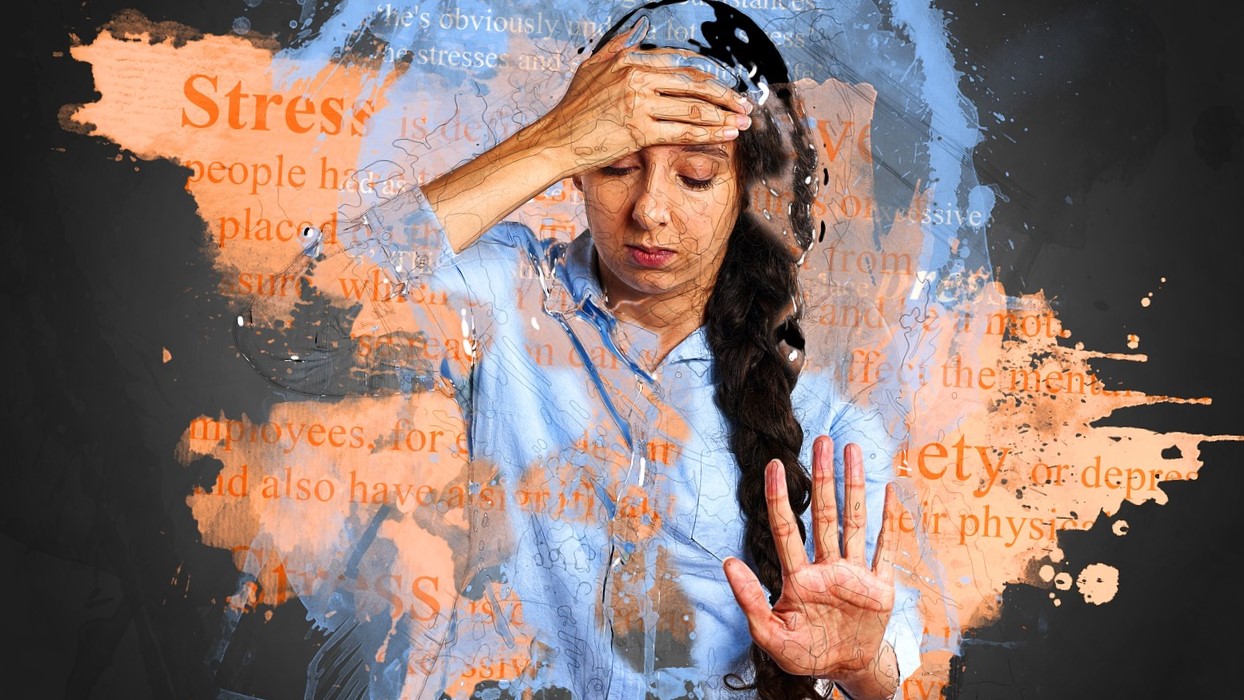Stress and anxiety are very common in adults these days. In fact, millions of adults suffer from stress and tension every day. Though it is a common experience, dealing with stress and managing it effectively is inevitable for a healthy lifestyle. Family problems, work issues, financial instabilities, health concerns, and a lot of other reasons contribute to the increased stress levels. But how to relieve stress or how to reduce stress, restoring a calm and peaceful life? This piece of writing is an answer to that.
Certain factors, such as genetics, lifestyle, level of social support, and personality type, can influence your vulnerability to stress. That is, some people are more likely to become stressed than others. If you are getting out of control and feeling stressed, try these tips to relieve stress. Chronic stress can harm your overall health and cause several disorders, such as depression. So, here are some proven ways to reduce stress.
Be more physically active
If you are feeling stressed and want to get out of it, be more physically active. Any kind of physical activity can help you relieve stress. Physical activities can improve your sense of well-being, mood, and mental health, helping you get away from the day’s irritation. Regular physical exercise can help reduce stress and improve mental health, relieving anxiety and depression. If you are currently inactive, start with gentle activities like walking, gardening, jogging, biking, etc that make you active.
Follow a healthy diet
What you eat will definitely affect your physical, mental, and every aspect of health. Following a healthy diet is one of the best-recommended ways to reduce stress in the best way.
I know some of you relieve stress by eating a lot of what you like. Some studies say that overeating is a resort for some people to reduce stress. However, the fact is that chronic stress leads to overeating and can harm your overall health. So, to maintain a healthy mind and body, have nutrient-rich foods that can regulate your stress and mood.
Experts suggest increasing the intake of whole foods such as fruits, vegetables, nuts, fish, and beans and minimising the intake of processed foods to improve your resilience to stress.
Practise self-care
Find some time for self-care and this definitely helps to relieve stress and tension. Studies show that people who give importance to self-care have a very reduced stress level, compared to those who don’t. So, don’t let the lack of self-care increase the risk of stress. Practise some self-care to live a healthy life without high-stress levels. Practising some simple self-care tips will make you happy and promote overall well-being. Given below are a few stress relievers to get quick relaxation:

- Reading a good book
- Seeing friends/family and building a sense of belonging
- Walk in the woods or go for a short walk
- Meditation, Yoga, and getting a massage
- Get some indoor plants
- Do something you love
- Practise writing in a gratitude journal
- Prioritise your to-do list
- Play with your pets
- Go on a weekend trip
- Get ample sleep
- Watch feel-good movies
- Donate not just to clear your space but to help someone else as well
- Get a beauty facial or a DIY skin treatment
- Write affirmations to overcome negative thoughts
- Engaged in some hobbies
Spend time with family & friends
If you are feeling low and badly want to reduce stress, look no further; spend some quality time with your friends and family. Support from your family and friends will help you relieve stress situations to a great extent. If you don’t have friends, consider joining a club or support group and building some good relationships there.
Be creative and get some music
Listening to some feel-good music is one of the best ways to reduce stress. Playing your favourite podcast can provide mental relief, reducing tension and stress hormones. Not just music, but you can turn your attention to some other creative activities such as sewing, drawing, painting, or some that you enjoy. Distract your mind with anything that requires your focus. Doing what you love would relieve your stress, reducing negative or unnecessary thoughts.
Learn to say no when it demands
Not all stressful events and situations are within our control. Taking control of your personal life can help reduce stress, and sustain your mental health. If you feel yourself talking about things more than you can handle, learn to say “no”. Be selective about things in your life and say no to things that can drown you in stress.
Also, set your boundaries with people who cause you more stress. Open up and protect yourself from unnecessary loads that can hamper your well-being.
Watch feel-good movies
When you are feeling stressed, watching a good movie can completely change your mood. You can find a lot of feel-good movies that can help you escape from your current mindset for a while. Whether you need a golden comedy, a hilarious joyride, or a hopeful message, movies can help you laugh for hours, navigate your stress, and get a therapeutic effect.
Spend time with nature
Spending some time outdoors in nature is a good way to relieve stress. Being in green spaces such as gardens, parks, and woods is a wonderful way to manage stress. Studies say that spending some time in nature or greenery can improve our psychological well-being, promoting positive thoughts. Whether it’s your local park or a hilltop, immerse yourself in nature and boost your mood.
Minimise screen time
Today’s generation is very much hooked on smartphones, laptops, and tablets. We can not even think of a day without these gadgets. Being addicted to these devices may increase stress levels. Studies linked to smartphone use and gadget addiction testimonies found increased levels of stress in people. So, spending too much time in front of a screen is not recommended if you want to reduce stress. Also, increased screen time can drastically affect our sleep, thereby increasing stress.
Breathe Breathe Breathe
So many times, you might be asked to take a deep breath when you feel tense. This deep-breathing exercise has been prevalent for centuries. When you feel stressed, find a space where you can calmly sit with your feet on the floor and hands on the top of your knees, take slow deep breaths, and concentrate on inhaling and exhaling, closing and opening each nostril, to relieve stress. Deep breathing helps to relax your body and mind, reducing stress and anxiety.
Meditate
Meditation is one of the best stress relievers to lighten stress, by focusing your attention. Practising meditation helps to focus your attention, clearing your crowded mind from negative and jumbled thoughts. According to experts, medication can infuse peace and calmness that can encourage your emotional well-being.
Keep a journal
Keep a journal and write down your emotions; this can help you pour down feelings and stressful events, giving way to a clear and calm mind. Write whatever comes to your mind; just forget about the grammar and spelling. Let your thoughts flow without any interruptions and release your emotions.
Laugh it off
Laughing your heart out not just makes you happy, it can help you relieve stress and tension. Humour cannot cure all ailments, but it is a good exercise that can make you feel better. When you laugh and take things light-heartedly, it not only reduces your mental stress but also infuses positive changes in your body. So, to reduce your stress and relieve tension and anxiety, indulge in reading some jokes, watching comedy, hanging out with your funny friends, and you can even crack up some jokes to make others happy as well.
Reduce your caffeine intake
Studies say that caffeine, a chemical substance found in coffee, chocolates, and energy drinks, can stimulate the central nervous system. Too much caffeine intake can harm your sleep and worsen your anxiety feelings, thereby increasing your stress levels. If you notice that your caffeine intake is increasing your anxiety level, reduce its consumption.
Stop using alcohol, tobacco and nicotine products
People who use alcohol, tobacco, and nicotine products usually refer to these products as stress relievers. But the fact is, these substances actually add more stress to the body. Though nicotine induces an immediate sense of relaxation, it actually increases stress and tension.
Similar is the case with alcohol. While some people consume alcohol to relieve stress, it actually causes a higher amount of cortisol, which can alter the brain’s workings. Alcohol consumption affects the hormonal balance and alters how the body experiences and responds to stress. According to research, cortisol is also connected to the development of metabolic problems and psychological disorders like depression.
Seek counselling
If self-care measures don’t work and you find it challenging to cope with your anxiety and stress, seek therapy or counselling. Therapy or counselling may be your only resort if you have trouble carrying out daily routines and responsibilities. Professional therapists and authorised counsellors can help you relieve stress, resulting in relaxation and good mental health.
So, “how to reduce stress” is not a stressful question anymore. Stress can seriously affect your physical and mental health. As we discussed already, exercise, meditation, spending time with nature, hanging out with friends and family, etc. are some of the most effective stress relievers to reduce stress and anxiety to a great extent. Practising the self-care tips mentioned above can help you reduce stress and improve your overall well-being.



